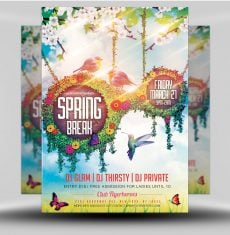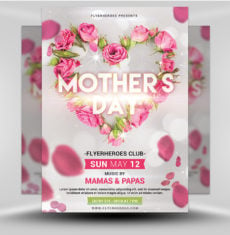Using the fact that you just sold a property in the area is one of the best ways to pique the interest of other potential sellers in the neighborhood, and this just sold flyer template is designed to do just that.
Front and center the just sold headline with red background is the perfect attention grabber. Utilizing a simple layout this flyer allows you to display one primary image and 6 secondary property images along with plenty of space for customizable contact information.
Use this flyer to let everyone in the neighborhood know about the most recent property sale and watch other interested sellers start contacting you for your services.
Fonts Required
General Information:
This flyer template is a premium Photoshop PSD flyer/poster template designed by FlyerHeroes to be used with Photoshop CS4 and higher.
Once you have purchased this flyer template, you are free to make any customizations and modifications you’d like.
You are also granted an unlimited use and 100% royalty-free license, meaning you can use this product as many times as you wish. You are free to use this product in both personal and commercial work.
You can read more about our file licenses here and our file requirements here.
If you have any further questions, please feel free to direct your questions to FlyerHeroes Support.

















